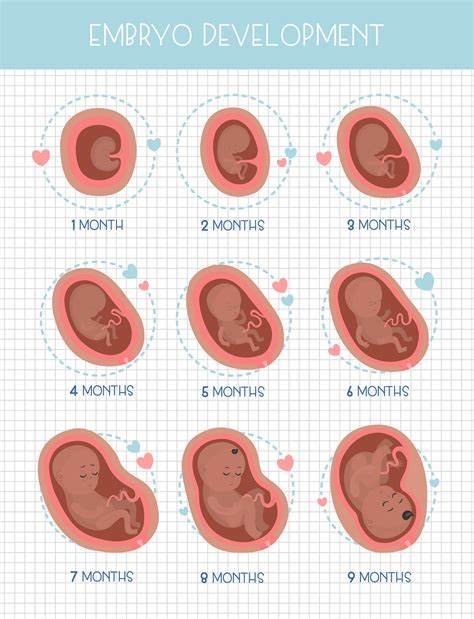
Early Signs of Pregnancy You Shouldn’t Ignore
When trying to conceive, many women eagerly look for signs that they might be pregnant. Even before you can take a home pregnancy test, your body may start showing subtle clues that indicate a pregnancy. Some of these signs are fairly common, while others are less obvious but still worth noting. Recognizing these early pregnancy symptoms can help you take the right steps and start caring for your health and your baby’s well-being as soon as possible. In this article, we’ll go over the early signs of pregnancy that you shouldn’t ignore. While many of these symptoms can be caused by factors unrelated to pregnancy, if you’re experiencing any of them, it’s important to listen to your body and take action.

Missed Period
Why It Happens:
A missed period is one of the most common early signs of pregnancy, especially if you have a regular menstrual cycle. When an egg is fertilized and implants into the uterus, your body begins producing pregnancy hormones (like hCG), which prevent the shedding of the uterine lining, leading to the cessation of your period.
What to Do:
If you’ve missed your period and have had unprotected sex, the next step is to take a home pregnancy test. If it’s positive, or if you suspect something else might be going on, make an appointment with your healthcare provider.
Morning Sickness (Nausea and Vomiting)
Why It Happens:
Morning sickness, which affects up to 80% of pregnant women, usually begins around the 6th week of pregnancy and typically peaks between weeks 8-10. The exact cause is unknown, but it’s thought to be due to hormonal changes, particularly the rise in human chorionic gonadotropin (hCG) and estrogen.
What to Do:
- Eat small, frequent meals.
- Stay hydrated by drinking water or ginger tea.
- Avoid triggers like certain smells or foods.
- If nausea becomes severe or constant, talk to your doctor about treatments, such as anti-nausea medication or alternative therapies like acupressure.
Breast Changes (Tenderness, Swelling, and Darkening of Areolas)
Why It Happens:
Changes in the breasts are common in early pregnancy due to the increase in hormones like estrogen and progesterone. You may notice your breasts feel sore, swollen, or heavier, and the areolas (the darker skin around your nipples) might darken and enlarge.
What to Do:
- Wear a comfortable, supportive bra to ease discomfort.
- Avoid tight-fitting or underwire bras that might cause irritation.
- Keep an eye on any changes and talk to your doctor if you notice any abnormalities or if the pain becomes too severe.
Fatigue
Why It Happens:
Fatigue is a very common early pregnancy symptom, especially in the first trimester. High levels of progesterone, the hormone responsible for maintaining pregnancy, can cause extreme tiredness. Your body is also working hard to accommodate the pregnancy, which can drain your energy.
What to Do:
- Prioritize rest, and don’t hesitate to take naps.
- Focus on eating a balanced diet to prevent blood sugar dips.
- Stay hydrated and engage in light exercises (such as walking or prenatal yoga) to boost energy levels.
Frequent Urination
Why It Happens:
Frequent urination is a result of your body adjusting to the increased blood volume during pregnancy. This increases kidney function, which in turn leads to more urine production. Additionally, the expanding uterus can put pressure on your bladder.
What to Do:
- Stay hydrated, but try to avoid drinking too much fluid right before bed to reduce nighttime trips to the bathroom.
- Consider pelvic floor exercises (Kegels) to strengthen bladder control, but don’t ignore excessive urgency or pain, as it could signal a urinary tract infection (UTI).
When to Take Action
If you’re experiencing any of these signs and suspect pregnancy, taking a home pregnancy test is your first step. However, if you notice any of the following symptoms, it’s important to contact your healthcare provider immediately:
- Severe abdominal pain or cramping
- Heavy bleeding (similar to a period)
- Severe dizziness or fainting
- Painful urination or blood in your urine
- Severe headache or visual disturbances
- Sudden, severe swelling of your hands, face, or feet
These could be signs of more serious conditions like miscarriage, ectopic pregnancy, or preeclampsia, which require immediate medical attention.
Conclusion
Recognizing the early signs of pregnancy can help you take proactive steps to ensure a healthy pregnancy from the start. If you suspect you’re pregnant and notice any of these symptoms, it’s important to consult with your healthcare provider for confirmation and guidance.
Remember, each pregnancy is different, and while some signs are common, they may not occur in every woman. Trust your body, and don’t hesitate to seek medical advice if something doesn’t feel right. Early care and attention can help set the stage for a healthy, successful pregnancy.






